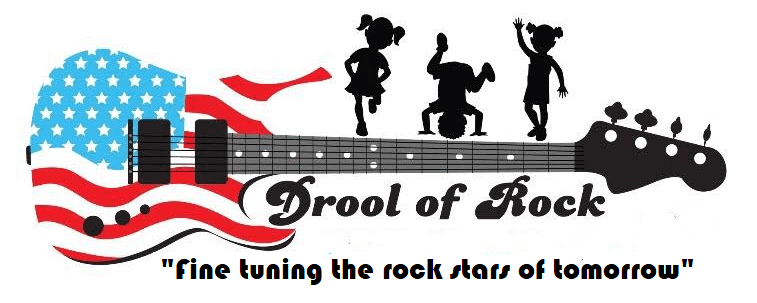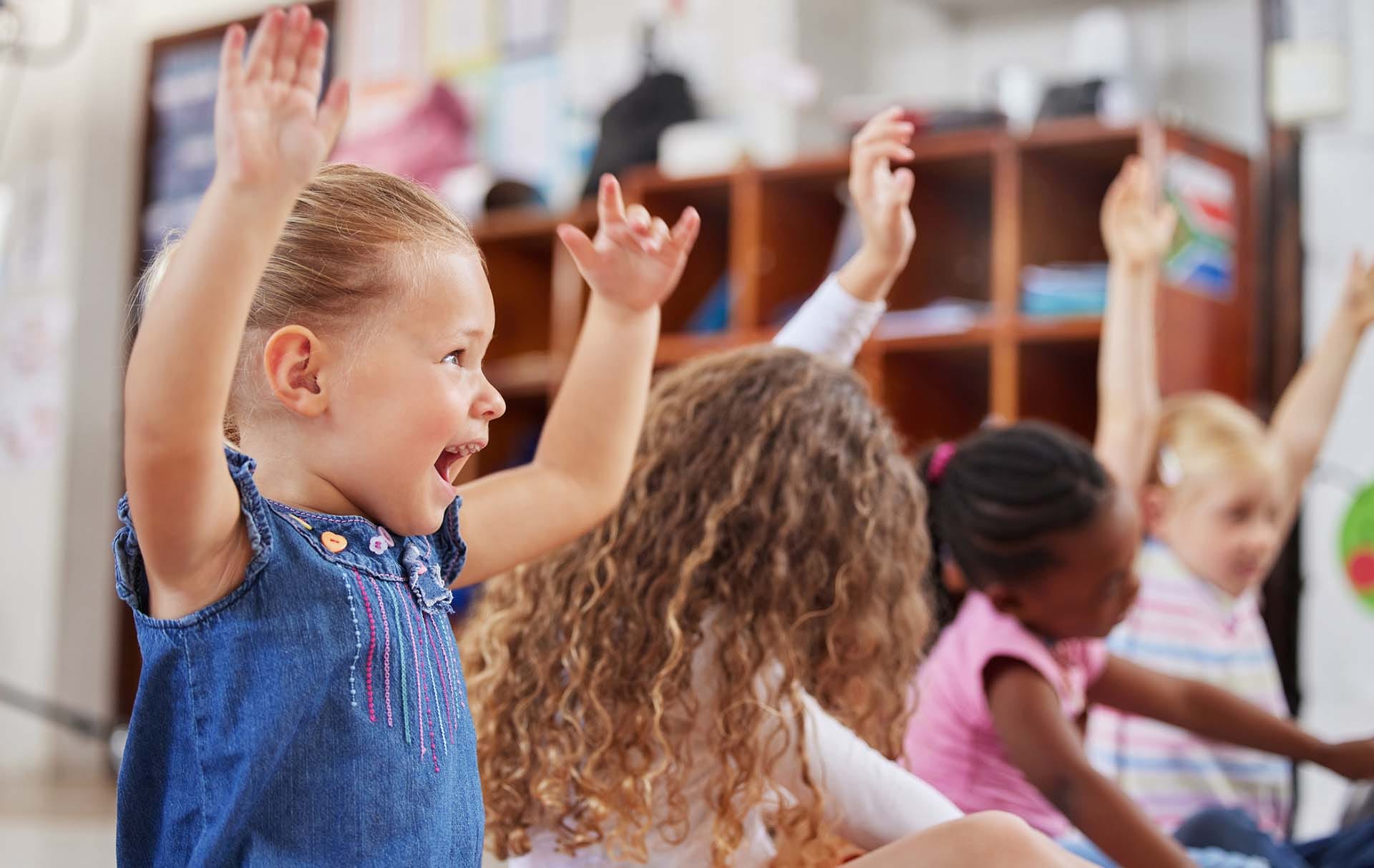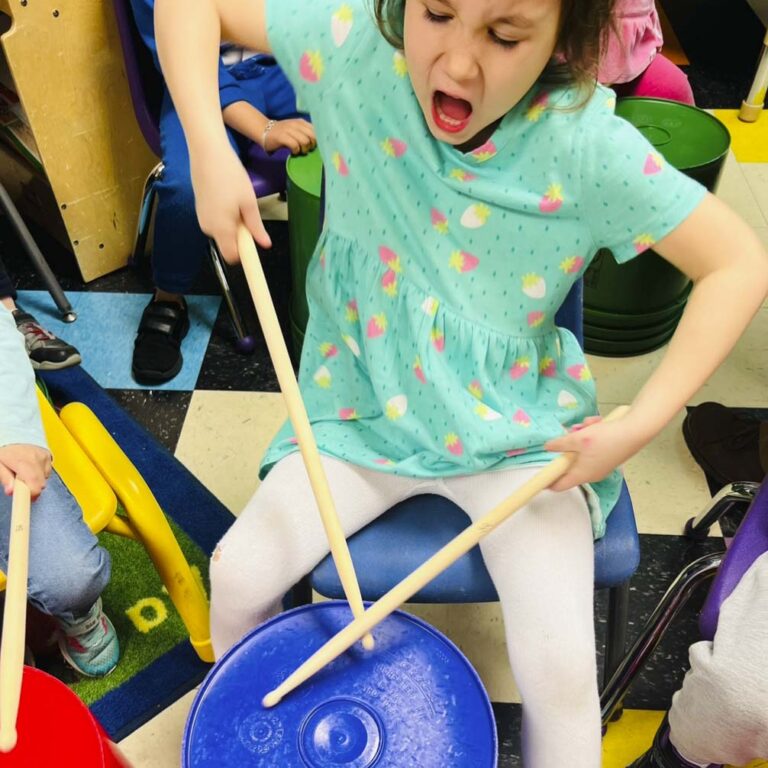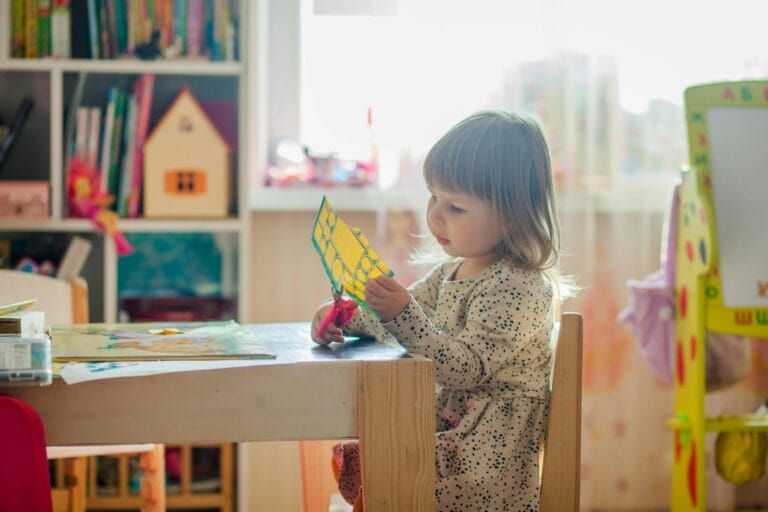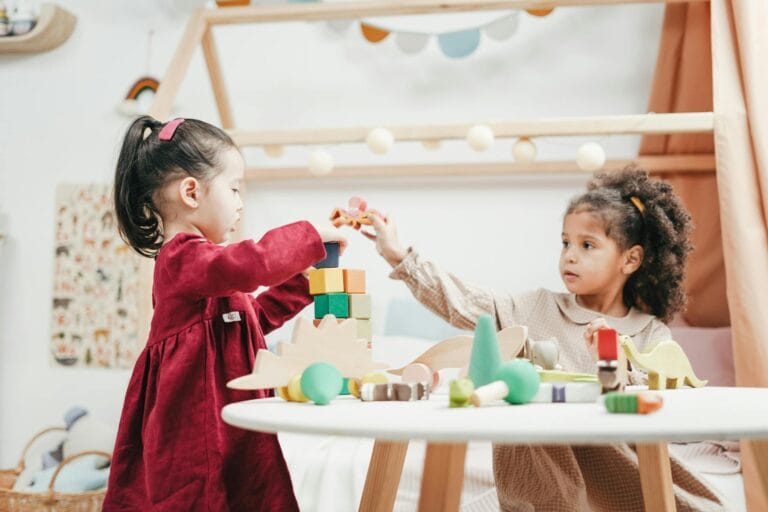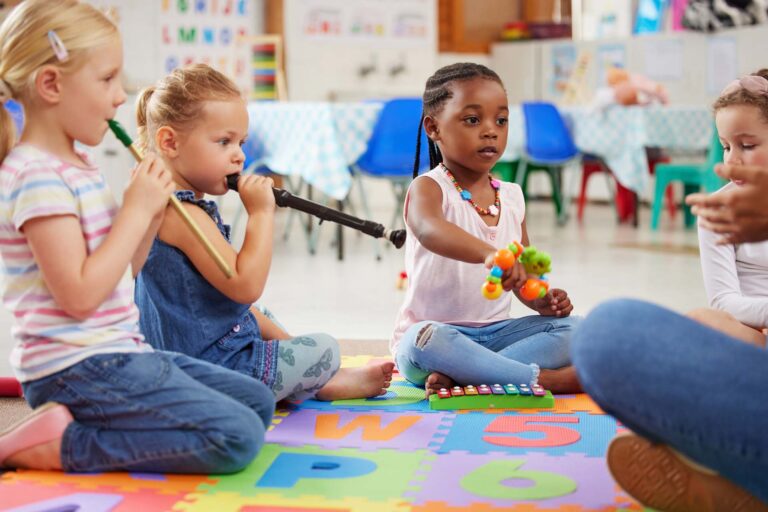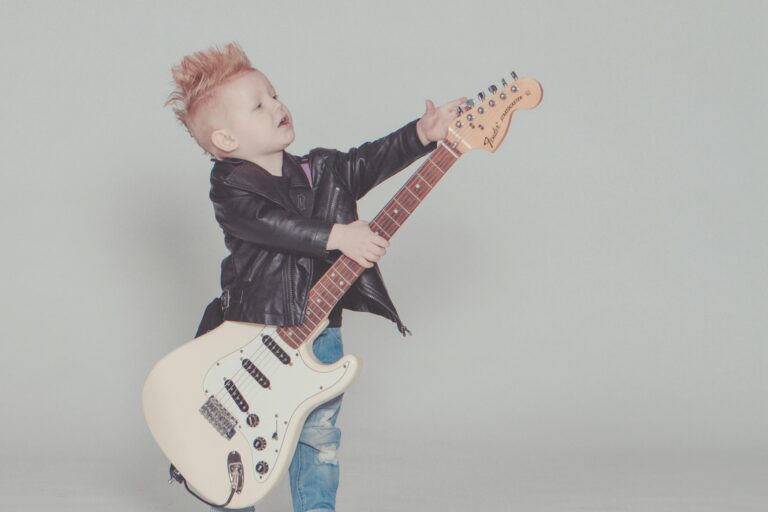At our childcare in Owings Mills, MD, music is more than just background noise—it’s a powerful tool for learning. One of the most important areas where music makes a difference is in language development. From early speech sounds to full conversations, music helps children build the foundation for strong communication skills.
Whether it’s singing a simple song, clapping to a beat, or repeating rhyming phrases, music supports the way young minds learn to understand and use language. In this article, we’ll explore how regular exposure to music can help children improve their speech, expand their vocabulary, and grow into confident communicators.
Music Builds Early Listening Skills
Before children can speak, they must first learn how to listen. Music helps train the brain to notice patterns in sound, like pitch, rhythm, and tone. When children hear these patterns in songs, they begin to understand how language works.
At our childcare center, we use music to guide listening activities in a fun and engaging way. For example:
- Singing familiar songs teaches children to listen for words and remember them.
- Clapping along to rhythms improves timing and coordination.
- Listening to different instruments helps children recognize changes in sound and pitch.
These early listening skills form the foundation for future reading and writing success.
Encouraging Speech Through Singing
Many children start to speak their first words through music. Singing provides a slow, clear, and repetitive way for children to hear language. This helps them feel more comfortable trying new sounds and phrases.
At our childcare in Owings Mills, MD, we use songs with repeating words and simple phrases to encourage children to join in. These might include:
- Nursery rhymes like “Twinkle, Twinkle, Little Star”
- Call-and-response songs that prompt participation
- Songs with actions, like “If You’re Happy and You Know It”
When children sing along, they’re practicing pronunciation, pitch, and sentence structure—all without even realizing they’re learning.
Expanding Vocabulary Through Song Lyrics
Children are naturally curious, and music introduces them to new words in a fun and memorable way. Songs often include everyday vocabulary, but they also expose kids to words they may not hear in regular conversation.
For example, songs about animals, weather, food, or feelings introduce new ideas and help children make connections between words and their meanings. Music also helps them remember these words longer because the rhythm and melody act as memory aids.
We use music in our classrooms to support theme-based learning. If we’re focusing on nature, we might sing songs about rain, sunshine, and trees. This reinforces vocabulary in a way that sticks.
Strengthening Comprehension and Language Flow
Understanding language goes beyond knowing the words—it’s about putting them together in a way that makes sense. Music helps with this, too. Songs tell stories, describe emotions, and explain simple ideas, helping children follow along and grasp the meaning.
Music also introduces important elements of grammar and sentence flow. As children sing, they begin to understand word order, rhyming patterns, and how sentences are formed.
For example:
- “The Itsy Bitsy Spider” teaches cause and effect.
- “Old MacDonald Had a Farm” introduces nouns and verbs.
- Songs with verses and a chorus teach repetition and structure.
These experiences help children develop the ability to comprehend language and use it confidently in their own conversations.
Boosting Confidence in Communication
For children who are shy or still developing speech, music offers a pressure-free way to engage. There’s no right or wrong way to sing or move to music, which makes it easier for children to express themselves without fear.
At our childcare center, we see children who are hesitant to speak begin to come out of their shells through music. They may start by humming along, then singing a few words, and eventually speaking more comfortably with their teachers and classmates.
By incorporating music into daily routines, we give every child the chance to grow in their own time and in their own way.
A Language-Rich Environment at Our Childcare in Owings Mills, MD
From morning circle time to afternoon story songs, music is a constant part of life at our center. It plays a key role in helping children become strong, confident communicators. We combine traditional teaching methods with musical activities to create a language-rich environment where every child can thrive.
Whether it’s through singing, dancing, or playing instruments, music helps children build the skills they need to speak clearly, understand others, and express themselves with joy. If you’re looking for a program that prioritizes language development in a creative and supportive way, our music-focused childcare in Owings Mills, MD is here to help your child find their voice. Schedule a tour today.
